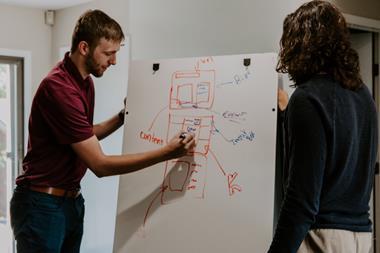
We are all looking for time management hacks – tools and tips to help us to get more done. The latest way of working that will release us from being overwhelmed, or the latest technology that might help us to revolutionise how we manage our time.
You’ve tried a bunch and mostly nothing has changed. Here’s what no one is telling you: be less helpful. Yep, you heard me right!
Every time John turns around in his chair and shouts to Sue, ‘How is it you get that file again?’ Sue tells him. What will John do next time? You’re right. Ask again. Why wouldn’t he?
We humans are lazy and want to get something done the quickest and easiest way possible. And why wouldn’t we? The problem is that the easiest way for us is not always the best way for everyone else.
Certainly, Sue agrees, and she’s wondering why John doesn’t write down where to get the file, because he has to ask every time. But John won’t change because he has no reason to.
He’s doing what thousands of years of evolution have taught him to do: minimal resource for maximum outcome. His brain asked, ‘How can I get this done quickest and easiest?’ Sue was the answer.
If this is to change, Sue needs to change. Being interrupted is stealing her focus and her productivity. ‘Task switching’, as it’s known in time management circles, is the costliest of all the productivity thieves.
But she can’t just say ‘no’. I agree, she can’t, but there are other choices outside yes and no. Sue can solve it another way by putting hurdles in the way – little hurdles that, over time, make John think ‘I could do this quicker myself’. For example, ‘John, give me 10 minutes as I just need to finish this’. In those 10 minutes, John will probably find the answer for himself. Dadaa!
The change Sue has to make is to be helpful where she can be helpful. If she’s an expert and can add real value, then she should. Or if she is truly solving something John can’t, then she should help him. For at least 20% of the things John asks, he could probably do them himself.
Don’t reward John’s laziness. Don’t punish it either. Just make the route he has chosen, asking you, a little harder than the other route he could have chosen: finding it for himself.



















No comments yet